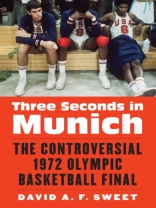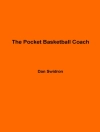One. Two. Three. That’s as long as it took to sear the souls of a dozen young American men, thanks to the craziest, most controversial finish in the history of the Olympics—the 1972 gold-medal basketball contest between the United States of America and the Union of Soviet Socialist Republics, the world’s two superpowers at the time. The U.S. team, whose unbeaten Olympic streak dated back to when Adolf Hitler reigned over the Berlin Games, believed it had won the gold medal that September in Munich—not once, but twice. But it was the third time the final seconds were played that counted. What happened? The head of international basketball—flouting rules he himself had created—trotted onto the court and demanded twice that time be put back on the clock. A referee allowed an illegal substitution and an illegal free-throw shooter for the Soviets while calling a slew of late fouls on the U.S. players. The American players became the only Olympic athletes in the history of the games to refuse their medals. Of course, the 1972 Olympics are remembered primarily for a far graver matter, when eleven Israeli team members were killed by Palestinian terrorists, stunning the world and temporarily stopping the games. One American player, Tommy Burleson, had a gun to his head as the hostages were marched past him before their deaths. Through interviews with many of the American players and others, the author relates the horror of terrorism, the pain of losing the most controversial championship game in sports history to a hated rival, and the consequences of the players’ decision to shun their Olympic medals to this day.
David A. F. Sweet
Three Seconds in Munich [EPUB ebook]
The Controversial 1972 Olympic Basketball Final
Three Seconds in Munich [EPUB ebook]
The Controversial 1972 Olympic Basketball Final
Beli ebook ini dan dapatkan 1 lagi PERCUMA!
Bahasa Inggeris ● Format EPUB ● ISBN 9781496217363 ● Penerbit UNP – Nebraska ● Diterbitkan 2019 ● Muat turun 3 kali ● Mata wang EUR ● ID 7082315 ● Salin perlindungan Adobe DRM
Memerlukan pembaca ebook yang mampu DRM












